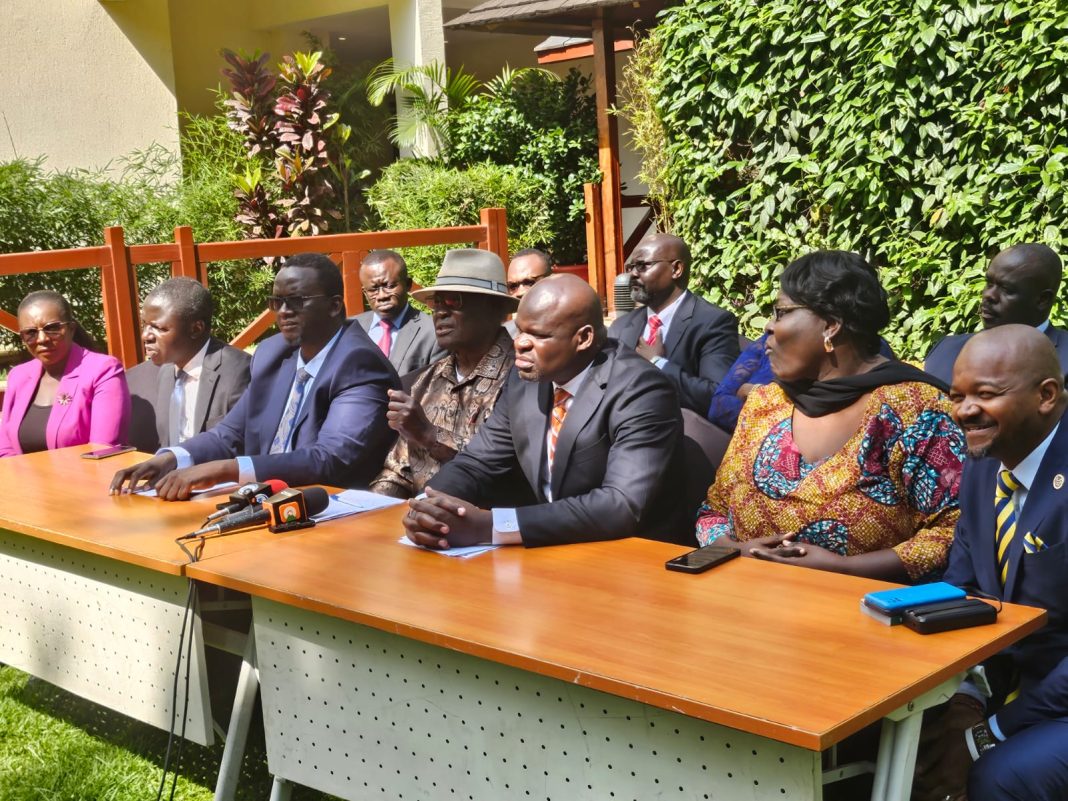By Habil Onyango
Some 210 youths in Migori County have graduated from the Digitruck training program which its aim is advancing Digital Inclusion in Rural Kenya Uriri Vocational Training Centre.
The graduands include 95 women and 115 men with essential digital skills, a six-week program which ran from 18 March to 16 April 2025.
The initiative provided training in computer literacy, digital marketing, online entrepreneurship, and financial literacy, enhancing employability and income-generating opportunities for participants.
According to Adam Lana, the Director of Government Affairs at Huawei, DigiTruck is a mobile digital classroom powered by Huawei, which delivers cutting-edge digital education directly to underserved communities.
This is done through providing hands-on learning experiences, and bridges the digital divide in rural regions and empowers youth with the tools to thrive in an increasingly digital world.
“We are proud to witness the graduation of 210 skilled individuals who are now better prepared to thrive in today’s digital economy,” said the Director.
“This program underscores our commitment to fostering inclusive digital transformation, especially for women and youth in rural areas.” Said the Director.
Adam Lane added, “Alongside our University Training Program, which partners with over 60 universities and TVETs, the DigiTruck enables us to reach youth outside formal education and in rural settings. I’m especially proud that we’ve achieved near gender parity in participation—digital skills are vital for everyone in today’s economy.”
The graduation ceremony was attended by local leaders, community members, and program partners, who celebrated the transformative impact of digital education on youth livelihoods.
Many trainees expressed heartfelt gratitude, highlighting how the training has opened new pathways in both employment and entrepreneurship.
Uriri Member of Parliament Hon. Mark Nyamita praised the initiative, emphasizing the role of ICT in levelling the playing field for youth across Kenya.
“Digital skills are no longer a luxury, they are a necessity. ICT is bridging opportunity gaps and unlocking potential in every corner of the country,” he said.
The curriculum placed strong emphasis on practical skills and online safety, including how to protect personal data, identify scams, and navigate the internet responsibly.
Nyamita commended Huawei’s commitment and called on more stakeholders to invest in digital skilling: “When we invest in digital education, we invest in people. Stronger, digitally empowered communities are the foundation of a stronger, more prosperous Kenya.”
A standout trainee, Maurine Riziki, shared her experience: “The skills I’ve gained—like graphic design and presentation preparation—have opened new doors. I’ve already landed freelance design jobs and earned income as I prepare for university. This training has been life-changing.”
Since its launch in 2019, the Digitruck program has trained over 6,030 youth across 36 counties, including Trans Nzoia, Kiambu, Nairobi, Uasin Gishu, Marsabit, and now Migori and Homa Bay. In 2024 alone, 1,648 individuals were trained—906 of them women—demonstrating a strong commitment to gender equity and inclusion.
The program aligns with the Kenya Kwanza Bottom-Up Economic Transformation Agenda (BETA), particularly its focus on the digital superhighway and creative economy. Digital skills are increasingly being adopted as a pathway to online gigs and further training, with growing interest among girls pursuing ICT-related opportunities in tertiary institutions.
With momentum building, the Digitruck continues to empower more communities, foster innovation, and enable Kenya’s youth to succeed in the digital age.




